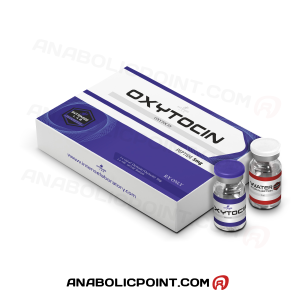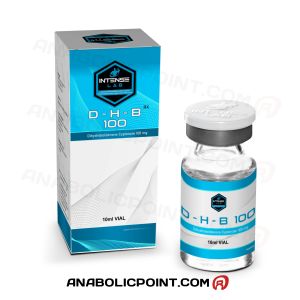Your basket is currently empty!
Steroid Production by Pharmaceutical Companies: A Critical Insight into the Industry
Steroids, particularly anabolic-androgenic steroids and corticosteroids, are indispensable in modern medicine and healthcare. While their misuse has generated significant controversy, the role of pharmaceutical companies in their production remains a vital part of healthcare systems worldwide. Steroid production is a complex process, combining advanced chemistry, rigorous quality control, and compliance with stringent regulations.
This article explores how pharmaceutical companies manufacture steroids, the regulations governing production, the applications of these drugs, and the controversies that surround their use and abuse.
The Basics of Steroid Production
Steroids are synthetic compounds that mimic the effects of naturally occurring hormones in the body, such as testosterone, cortisol, and estrogen. Pharmaceutical companies produce two primary types of steroids: anabolic steroids, which promote muscle growth and physical performance, and corticosteroids, which are used to treat inflammation and autoimmune conditions.
The Chemistry Behind Steroid Production
The production of synthetic steroids typically begins with a raw material, such as plant sterols derived from soybeans or yams, or cholesterol extracted from animal sources. These materials are chemically modified through a series of reactions, including oxidation, reduction, and isomerization, to create specific steroid molecules.
Pharmaceutical companies rely on sophisticated laboratory techniques, including:
- Steroid Synthesis: Advanced chemical processes to assemble the steroid structure.
- Purification: Techniques like crystallization and chromatography ensure the final product is free of impurities.
- Sterile Manufacturing: Ensuring the final product is safe for human use.
Applications of Pharmaceutical Steroids
Steroids produced by pharmaceutical companies serve a variety of medical purposes. Their applications extend across numerous fields of medicine, including endocrinology, dermatology, oncology, and sports medicine.
Corticosteroids in Medicine
Corticosteroids are widely used to treat:
- Inflammatory Diseases: Conditions like rheumatoid arthritis and lupus.
- Respiratory Issues: Asthma and chronic obstructive pulmonary disease (COPD).
- Allergic Reactions: Severe allergies and anaphylaxis.
Anabolic Steroids in Therapeutics
Although anabolic steroids are often associated with misuse, they have legitimate medical uses, such as:
- Hormonal Deficiencies: Treating testosterone deficiencies in men.
- Muscle-Wasting Disorders: Helping patients with AIDS or cancer regain muscle mass.
- Delayed Puberty: Addressing hormonal imbalances in adolescents.
These drugs must be prescribed and monitored carefully to avoid potential side effects and misuse.
Pharmaceutical Companies and Steroid Regulations
Pharmaceutical companies operate under strict regulations when producing steroids, ensuring these drugs are safe, effective, and accessible only to those with legitimate medical needs.
Regulatory Oversight
Agencies such as the U.S. Food and Drug Administration (FDA), the European Medicines Agency (EMA), and similar organizations in other countries establish guidelines for steroid production, distribution, and use. These regulations encompass:
- Manufacturing Standards: Companies must adhere to Good Manufacturing Practices (GMP).
- Clinical Trials: Rigorous testing to verify safety and efficacy.
- Post-Market Surveillance: Monitoring for adverse effects and compliance.
Controlled Substance Classification
In many countries, anabolic steroids are classified as controlled substances due to their potential for abuse. Pharmaceutical companies must implement safeguards to prevent diversion to the black market.
The Role of Steroid Production in Addressing Public Health Challenges
Pharmaceutical steroids play a crucial role in addressing global health issues. For instance:
- COVID-19 and Corticosteroids: The pandemic underscored the importance of corticosteroids like dexamethasone in managing severe respiratory symptoms.
- Chronic Diseases: Steroids are a cornerstone treatment for chronic inflammatory and autoimmune diseases, improving the quality of life for millions.
- Hormone Replacement Therapy (HRT): Anabolic steroids are essential in treating hormonal imbalances and conditions like hypogonadism.
Pharmaceutical companies continue to innovate, developing new steroid formulations with improved efficacy and reduced side effects.
Controversies and Ethical Considerations
Despite their medical benefits, steroid production and use are not without controversy. Issues surrounding misuse, environmental impact, and the black market highlight the challenges pharmaceutical companies face.
Steroid Abuse and Public Perception
Anabolic steroids are widely misused for performance enhancement and bodybuilding. This abuse undermines the medical credibility of these drugs and contributes to stigma surrounding their legitimate use. Pharmaceutical companies often face scrutiny for producing drugs that are prone to misuse.
Environmental Concerns
The production of synthetic steroids involves the use of chemical reagents and solvents, raising questions about environmental sustainability. Companies are investing in greener manufacturing practices to minimize their ecological footprint.
Black Market Diversion
Steroids produced by legitimate pharmaceutical companies sometimes find their way onto the black market. Addressing this issue requires robust tracking systems and collaboration with law enforcement.
Innovations in Steroid Production
Advances in pharmaceutical technology are transforming steroid production. Companies are exploring:
- Biotechnological Methods: Using genetically engineered microorganisms to produce steroid precursors.
- Sustained-Release Formulations: Developing drugs that provide prolonged effects, reducing the frequency of administration.
- Non-Steroidal Alternatives: Researching compounds that mimic steroid effects without the associated risks.
These innovations aim to enhance the safety, efficacy, and accessibility of steroids while reducing their potential for misuse.
Pharmaceutical Steroids vs. Black-Market Counterparts
One of the critical distinctions between pharmaceutical-grade steroids and their black-market counterparts lies in quality and safety. Pharmaceutical companies produce steroids under stringent regulations, ensuring purity, potency, and sterility.
In contrast, black-market steroids are often manufactured in unregulated settings, posing significant health risks to users. Adulteration, contamination, and incorrect dosages are common issues.
Economic Impact of Steroid Production
The pharmaceutical steroid market is a multi-billion-dollar industry. With increasing demand for treatments for chronic diseases, hormonal imbalances, and muscle-wasting conditions, this market continues to grow. However, companies must balance profitability with ethical responsibility, ensuring their products are used appropriately and do not contribute to misuse.
The Future of Steroid Production
The future of steroid production lies in addressing current challenges while embracing innovation. Pharmaceutical companies are likely to focus on:
- Improved Drug Delivery: Exploring methods such as transdermal patches and injectable microspheres.
- Precision Medicine: Tailoring steroid therapies to individual genetic profiles.
- Global Accessibility: Ensuring life-saving steroids are affordable and accessible in low-income regions.
These efforts will ensure that steroids remain an essential component of modern medicine, benefiting patients worldwide.
Common Questions About Steroid Production
- What are steroids, and why are they produced?
Steroids are synthetic compounds that mimic hormones like testosterone and cortisol. They are produced for medical purposes, such as treating inflammation and hormonal deficiencies. - How are pharmaceutical steroids made?
Steroids are synthesized from plant sterols or cholesterol through complex chemical processes. The final product undergoes rigorous purification and quality control. - What types of steroids do pharmaceutical companies produce?
They produce anabolic steroids for muscle growth and corticosteroids for inflammation and autoimmune conditions. - Why are steroids classified as controlled substances?
Anabolic steroids are controlled due to their potential for misuse in sports and bodybuilding, leading to serious health risks. - How do pharmaceutical companies ensure the safety of steroids?
Companies follow Good Manufacturing Practices (GMP) and conduct clinical trials to ensure the safety and efficacy of their products. - Are steroids environmentally harmful to produce?
Steroid production can have an environmental impact due to chemical waste. Companies are adopting greener practices to mitigate these effects. - How do pharmaceutical steroids differ from black-market steroids?
Pharmaceutical steroids are regulated, ensuring quality and safety. Black-market steroids often contain impurities and incorrect dosages, posing health risks. - What is the economic significance of steroid production?
Steroids are a multi-billion-dollar industry, essential for treating chronic diseases and other conditions. - How are steroids used in sports medicine?
Steroids help athletes recover from injuries by reducing inflammation and promoting muscle repair. However, their misuse in performance enhancement is a concern. - What innovations are shaping the future of steroid production?
Biotechnology, sustained-release formulations, and non-steroidal alternatives are key areas of innovation in steroid production.
A Continued Commitment to Medical Excellence
The production of steroids by pharmaceutical companies is a cornerstone of modern healthcare, offering life-changing treatments for a range of conditions. However, balancing the benefits of these drugs with their potential for misuse and environmental impact remains a critical challenge. Through innovation, ethical practices, and regulatory oversight, pharmaceutical companies can ensure that steroids continue to serve as valuable tools in medicine while minimizing their risks.













